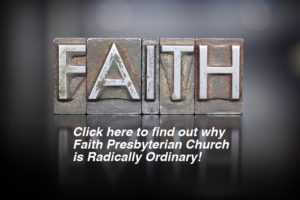10 Steps to Holiness[i] Six: Who Are You Wearing? (Part 1)
Colossians 3:1-17
If then you have been raised with Christ, seek the things that are above, where Christ is, seated at the right hand of God. 2 Set your minds on things that are above, not on things that are on earth. 3 For you have died, and your life is hidden with Christ in God. 4 When Christ who is your life appears, then you also will appear with him in glory.
5 Put to death therefore what is earthly in you: sexual immorality, impurity, passion, evil desire, and covetousness, which is idolatry. 6 On account of these the wrath of God is coming. 7 In these you too once walked, when you were living in them. 8 But now you must put them all away: anger, wrath, malice, slander, and obscene talk from your mouth. 9 Do not lie to one another, seeing that you have put off the old self with its practices 10 and have put on the new self, which is being renewed in knowledge after the image of its creator. 11 Here there is not Greek and Jew, circumcised and uncircumcised, barbarian, Scythian, slave, free; but Christ is all, and in all.
12 Put on then, as God’s chosen ones, holy and beloved, compassionate hearts, kindness, humility, meekness, and patience, 13 bearing with one another and, if one has a complaint against another, forgiving each other; as the Lord has forgiven you, so you also must forgive. 14 And above all these put on love, which binds everything together in perfect harmony. 15 And let the peace of Christ rule in your hearts, to which indeed you were called in one body. And be thankful. 16 Let the word of Christ dwell in you richly, teaching and admonishing one another in all wisdom, singing psalms and hymns and spiritual songs, with thankfulness in your hearts to God. 17 And whatever you do, in word or deed, do everything in the name of the Lord Jesus, giving thanks to God the Father through him. [1]
Have you ever watched awards shows on television? Every year I hold my own exclusive Oscar party for me and my dogs. My wife puts in her obligatory appearance before the boredom puts her to sleep. Only the dogs and I stick it out from the red-carpet show to the bitter end of the after-party interviews. And the question every star gets on the red carpet is, “Who are you wearing?” The interviewer is asking what famous fashion designer produced the star’s clothes.
We can think of this section of Colossians as the Apostle Paul’s advice as a spiritual fashion coordinator. He tells us what outfit to wear and how to accessorize it for our private life, our everyday life, and our church life. He’s instructing the little congregation at Colossae about their faith-union with Christ because the church is beset with all kinds of bad teaching.
Feeling like they were missing something in their Christian experience, the Colossians were following spiritual gurus’ teachings on how to live a “victorious Christian life” through the Daniel Diet, the Sampson CrossFit Program, and having ecstatic visions of angels that dispense higher, hidden truths. False teachers were selling programs to a higher life – a kind of upgrade package beyond what the Holy Spirit provides in the ordinary means of Word and Sacrament. After all, who doesn’t want to be the very best me I can be?
Paul teaches that all who trust into Christ are so united with Christ they possess ALL his benefits. There is no secret upgrade package. There is no truth hiding in ecstatic visions of angels. There is no spiritual guru who can offer more of the benefits of Christ than all believers already have. Paul re-directs the tempted believers back to the reality of Christ alone, back to the “everythingness of Jesus.” He reminded them they have been crucified and raised with Christ and that their lives are hidden with Christ in God.
Paul teaches that believers have a new identity in Christ because we have died with him; have been buried with him; have been raised with him; are hidden with him in God; and, are intimately and personally united to Christ so that we will appear with him in glory when he returns to consummate all things to himself. The problem is that we don’t naturally think of ourselves in these terms. And unless we are processing our new reality we are not thinking clearly about who we are in Christ. Like the Colossians, we become attracted to false spiritualities and methodologies promising “spiritual fullness.”
In his letters, Paul uses the expression “in Christ” over 80 times. He uses the phrase “in the Lord” over forty times. That count excludes his variations such as “in him.” Paul never uses the term Christian because he is driven to teach us that we have a new identity with new power and new benefits. Colossians 3:1-17 is one of the most comprehensive in the New Testament to help us gain true self-understanding. Paul lays out the dimensions and implications of union with Christ in detail.
Trusting into Christ brings us into union with him so that we have died with Christ; we have been buried with him; we have been raised with him into new life; and, when he appears to consummate all things to himself we will appear with him (3:1-3). Because of these facts we are commanded to get rid of everything that is inconsistent with our new identity and grow in the graces that are ours in Christ. Like all biblical commands, there are positive aspects (what to do) and negative aspects (what not to do). So, in this first part of “Step Six” in our “Ten Steps to Holiness,” we see the negative command: put off. We’ll be looking at this half of the command this morning in verses 1-11.
WHAT NOT TO WEAR
Undergarments
In keeping with the negative/positive aspects of God’s law, Paul first instructs us what NOT to wear. He deals with three layers of virtual clothing: undergarments, basic garments, and outerwear. The first layer is our private (or even secret) lives. In verse 5 he lists: “sexual immorality, impurity, passion, evil desire, and covetousness, which is idolatry.”[2] Notice how Paul’s list begins with the outward acts and descends into the unspoken things of the heart? The heart of the matter, the heart of all sin, is idolatry – the pursuit of whatever I seek to make myself happy because everything is “all about me.”
God created humans for himself and his glory. When we reject or deny our created desire for God we don’t destroy our need, we only distort it. We replace that most basic need by deifying something God created, thinking we have chosen wisely (Rom. 1:22-25). If believers have died and been raised with Christ, then they have died to the domination of old habits and instincts. The opposite is also true; these things are dead so far as the person in Christ is concerned; these things can no longer enforce their claims as they once did and they will never, never deliver the believer the fulfillment they promise because they are dead things.[3]
But we can never reckon ourselves dead to sins if we refuse to name sin for what it is – the minimizing of Christ and the idolizing of my Old Adam’s desire for its own “fullness” on its own terms. If the Lord Jesus Christ truly holds all things together; if he is truly and totally sovereign in all things; if he loves me intimately and infinitely; if he is carrying me along for his glory and my good, then I have what I have and lack what I lack for HIS glory and MY good (which is seeing him more clearly and loving him more dearly).
When things are not going MY way, they are ALWAYS going HIS way for his glory and my good. So, when I pursue my wants over Jesus’ wants I am idolizing myself on the very deepest level possible; I am praying to myself about myself. I desperately need to see my sin for what it is – a rejection of Christ, functional atheism. The condition of sin is the condition of pre-occupation with ME. Sin is self-absorption.
Sin is, “It’s all about me!” Sin is my attempt to re-order God’s reality. When we are in Christ, sin will always ultimately leave a bad taste in our mouths because we have been freed from sin’s slavery and our minds are being renewed. Try as we might, we cannot find contentment in the Old Adam.
Basic Garments
Paul moves from the secret life of the mind (the undergarments) to the everyday life (basic garments). In verse 8, he continues his list by moving from private thoughts to spoken words (inward to outward, private to public). 8 But now you must put them all away: anger, wrath, malice, slander, and obscene talk from your mouth.[4] “When a tide of passion or a surge of anger is felt, it must be dealt with as the alien intruder it really is, and turned out of the house as having no right to be there at all, let alone to be giving orders.”[5] Have you ever caught yourself saying, “I’m sorry; I really didn’t mean to say that” when something snarky tumbles out of your mouth? In trying to un-ring the bell, we’re refusing to confront the intense self-focus out of which our mouths have spoken. Jesus said, “45 The good person out of the good treasure of his heart produces good, and the evil person out of his evil treasure produces evil, for out of the abundance of the heart his mouth speaks” (Lk. 6:45).[6]
When a sinful thought or act has a name — anger, wrath, malice, slander, and obscene talk – it becomes uglier; it becomes difficult for us to rationalize away as “concern.” “I’m concerned that Pastor Epaphras left us to visit Rome. He should be here in Colossae instead of hanging out with that Paul fellow. After all, Paul is a prisoner. Pastor Epaphras is putting our church in danger. Clearly, he doesn’t care about us!” What our Old Adam, our flesh, so often labels as a “concern,” Paul calls anger, wrath, malice, slander, and obscene talk … deceit.
The word wrath can be translated as “intense angry outbursts” or “fury.” But it can also mean “indignant” and “exasperated.” Paul is pointing to our impatience and irritation over people and circumstances that fail to meet our felt needs. The root cause of indignance and exasperation is our refusal to rest in God’s sovereign control of our situation – his purposes and detailed plans, the way he has ordered our steps to bring us into a situation for his glory and our holiness is the cause of our exasperation. Indignation and exasperation are signals of spiritual danger.
Paul’s command to remove these “garments” from our public life center on our attitudes and speech which destroy the character, the reputation, the life of others. Jesus says this is murder (Matt. 5:21-22). When you complain about another person, do you think of it as murder? Do you see your indignation and exasperation for what it is – placing another human being on your altar of self and slashing them open with your tongue as a sacrifice to your own “kingdom of me”? You should, because that is exactly what you are doing. Period. No excuses. No take-backs. The mouth speaks out of the thoughts of the heart. So, “I didn’t mean to say that” is a lie we may tell ourselves, but Jesus has already called it out for the lie it is.
The spiritual clothing of anger, wrath, malice, slander, and obscene talk are out of fashion for those in Christ. They are the garments of a former life. They are the clothes of slaves, not the clothes of those freed from bondage to sin. Think of yourself attending a grand formal gala only to discover your elegant clothes are frayed, torn, and covered with excrement. Until we see our sin as the death-deserving filth it is, we will never truly repent of it; and we will never see the good news of Jesus’ one-way love for us in all its glory.
Church Clothes
The third layer of out-of-style clothing those in Christ must ban from their spiritual wardrobe is our deceitful layer of church clothes. Notice the beginning of verse 9, “9 Do not lie to one another….”[7] In the context of this passage, Paul is not simply addressing spoken deceit (he’s already addressed that in verse 8). He’s writing about deceiving fellow believers with pretense – pretending to be people who have it all together, who have achieved the “fuller life” the Colossians sought from the spiritual gurus.
When we acknowledge our deepest sins, we stop asking for God to help us stop lust, or malice, or anger, or gossip. I begin repenting over my intense self-focus that turns other people and things and circumstance into slaves of my own agenda. Your Old Adam can manage and organize your flesh and your outward behavior, but only the Spirit of Christ can change your heart. If you’re not sure how to repent on that level, take the bulletin home and start with our Corporate Confession of Sin written as an application for this Colossians series.
If we have been accepted in the beloved – and you have if you are trusting into the sacrificial death and glorious resurrection of the ascended Christ Jesus who knows all our darkest secrets – then we should be increasingly delivered from the fear of others’ opinions. Pretending to be something we are not gives the lie to our unconditional acceptance with God.
All About Jesus
You who are in Christ have been delivered from the kingdom of the walking dead and set free in a new Kingdom with a new dress code. This is not simply an individual truth. It is a collective truth. Paul writes (3:11), “…Christ is all, and in all.[8] How do you think that would transform the quality of our fellowship together if that was the primary principle upon which we dealt with each other, not only in this congregation but it all the professing church? What would it look like if we thought, “This is a brother or sister in whom the Lord Jesus Christ is unashamed to dwell.”
Your old clothing was designed by the first Adam and it deserves the eternal wrath of God. It has no place being worn in private, in public, or in the congregation of Christ; for this is the place where “…Christ is all, and in all.”[9] Since Christ is everything TO the church and dwells in all the believers IN the church, then the tattered, torn, and foul-smelling old fashion of anger, exasperation, malice, slander, and obscene talk … deceit have no place in your life. No excuses.
When someone in the Church prompts our anger, malice, wrath, gossip, and feelings of superiority, then we ought to name our sin of self-worship; we ought to repent and thank Jesus for loving us even in our self-focused sins. I need to understand how great is God’s grace for ME. When I do, all my relative morality and superiority are shattered. Only then can I take off my tattered, nasty, stinking clothing and put on Christ.
If the first thing we notice about a brother or sister in Christ is NOT that Christ lives in them unashamedly, then we have a deep-seated worldliness and pretense in our hearts. We are not considering that God has transferred us into the kingdom of his beloved Son (1:3), a kingdom of a restored humanity bearing an ever-increasing image of God that knows no barriers of race, language, culture, or economic class and rests entirely in the eternal righteousness of its King.
Since that is what God is remaking in Christ Jesus, who are YOU to tear it down through self-worship? If you’re resting in Christ, it’s impossible to be tearing apart his people in his Kingdom. Put off the old Adam and put on Christ. Only then will the peace of Christ rule in your hearts (3:15). Only then will you rest in Christ’s work for you.
[1] The Holy Bible: English Standard Version (Wheaton: Standard Bible Society, 2016), Col. 3:1–18.
[2] The Holy Bible: English Standard Version (Wheaton: Standard Bible Society, 2016), Col 3:5.
[3] Bruce, 141.
[4] The Holy Bible: English Standard Version (Wheaton: Standard Bible Society, 2016), Col 3:8.
[5] Wright, 141.
[6] The Holy Bible: English Standard Version (Wheaton: Standard Bible Society, 2016), Lk 6:45.
[7] The Holy Bible: English Standard Version (Wheaton: Standard Bible Society, 2016), Col 3:9.
[8] The Holy Bible: English Standard Version (Wheaton: Standard Bible Society, 2016), Col 3:11. Emphasis added.
[9] The Holy Bible: English Standard Version (Wheaton: Standard Bible Society, 2016), Col 3:11. Emphasis added.
[i] This series, with otherwise-noted sources, is a condensed version of Devoted to God: Blueprints For Sanctification by Sinclair Ferguson. Edinburgh: Banner of Truth Trust (2016).




